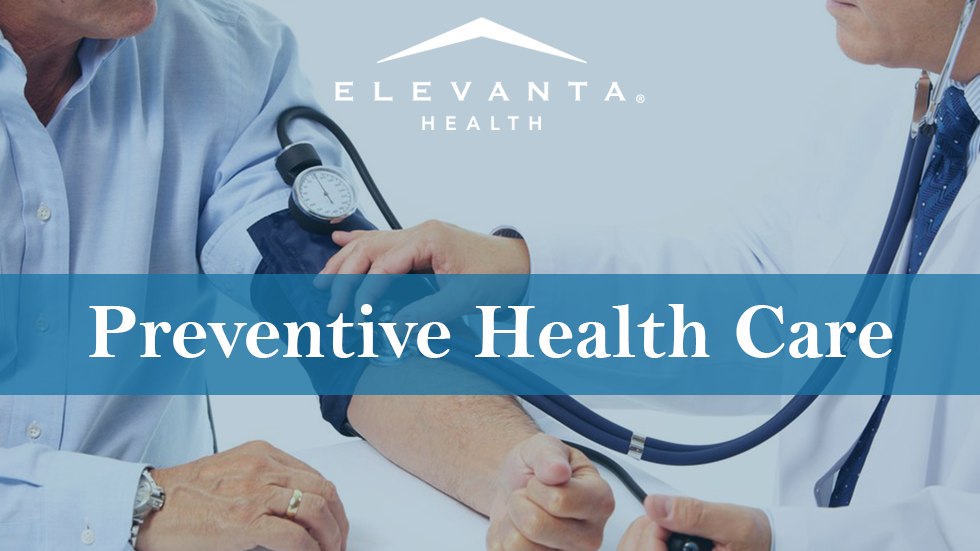In today’s fast-paced world, maintaining good health is more important than ever. As the saying goes, “Prevention is better than cure.” Adopting preventive measures plays a crucial role in safeguarding our well-being and promoting a higher quality of life. By taking a proactive approach to healthcare, we can reduce the risk of developing various diseases, enhance our physical and mental well-being, and increase our overall longevity.
This blog aims to highlight the significance of preventive measures for maintaining optimal health and well-being. We will explore the benefits of adopting a proactive approach to healthcare and introduce key areas of focus for preventive measures.
Physical Well-being:
Balanced Diet and Nutrition:
A well-balanced diet forms the foundation of good health. It provides our bodies with essential nutrients, vitamins, and minerals necessary for proper functioning. By consuming a variety of nutrient-rich foods, we can ensure that our bodies receive the fuel they need to thrive.
When it comes to nutrition, it’s essential to focus on whole foods such as fruits, vegetables, lean proteins, whole grains, and healthy fats. These foods are packed with vitamins, antioxidants, and fiber, which promote optimal health and protect against diseases. For example, fruits and vegetables provide a range of vitamins and minerals, while lean proteins support muscle growth and repair.
Portion control and mindful eating habits are equally important. By paying attention to our body’s hunger and fullness cues, we can avoid overeating and maintain a healthy weight. Additionally, staying hydrated by consuming an adequate amount of water throughout the day is crucial for proper bodily functions and overall well-being.
Regular Exercise Routine:
Physical activity is vital for maintaining good health. Regular exercise offers numerous benefits, including improved cardiovascular health, increased muscle strength, enhanced mental well-being, and reduced risk of chronic diseases.
Finding an exercise routine that suits personal preferences and fitness levels is key. This can include activities such as walking, jogging, swimming, cycling, or engaging in sports. The recommended duration and intensity of exercise may vary depending on individual goals and capabilities. It is advisable to aim for at least 150 minutes of moderate-intensity aerobic exercise per week, along with strength training exercises to improve muscle tone and bone health.
Staying motivated and overcoming common barriers to exercise is essential for maintaining a consistent routine. Setting realistic goals, finding an exercise buddy, or varying the types of activities can help keep motivation high.
Sufficient Sleep and Rest:
In our busy lives, quality sleep often takes a backseat. However, getting sufficient sleep is crucial for overall health and well-being. During sleep, our bodies repair and rejuvenate, strengthening the immune system and supporting cognitive function.
The recommended hours of sleep vary depending on age groups, with adults generally requiring 7-9 hours of sleep per night. To improve sleep quality, it’s important to establish a regular sleep schedule, create a comfortable sleep environment, and practice good sleep hygiene. This includes avoiding electronic devices before bedtime, limiting caffeine and alcohol intake, and engaging in relaxation techniques such as deep breathing or meditation.
Incorporating stress management and relaxation techniques into our daily lives is also beneficial for ensuring adequate rest. Techniques like yoga, tai chi, or engaging in hobbies can help reduce stress levels, improve sleep, and promote overall well-being.
Mental and Emotional Well-being:
Stress Management:
Chronic stress can take a toll on both our mental and physical health. It’s important to recognize the signs of stress and adopt effective strategies to manage and reduce it. Stress reduction techniques such as mindfulness, deep breathing exercises, and meditation can help calm the mind, increase self-awareness, and promote relaxation.
Taking regular breaks and engaging in hobbies or activities we enjoy can also play a significant role in stress management.
Preventive Healthcare Measures:
Regular Health Check-ups:
Routine medical check-ups are an essential aspect of preventive healthcare. Regular visits to healthcare professionals allow for early detection of potential health issues and provide an opportunity to address concerns before they develop into more serious conditions. These check-ups involve a comprehensive evaluation of overall health, including physical examinations, screenings, and medical history review.
The frequency of health screenings may vary based on age, gender, and individual risk factors. Common screenings include blood pressure measurements, cholesterol checks, diabetes screenings, cancer screenings (such as mammograms, Pap smears, and colonoscopies), and bone density tests. These screenings can help detect abnormalities or signs of diseases in their early stages when they are often more treatable.
Early detection through regular check-ups is crucial for timely intervention and prevention of serious health problems. By identifying health issues early, healthcare professionals can develop appropriate treatment plans, offer lifestyle modifications, and provide necessary guidance to reduce the risk of complications.
It is important to address common concerns and encourage open communication with healthcare professionals. Many individuals may experience anxiety or fear about medical visits or receiving potentially unfavorable results. Creating a comfortable and supportive environment and fostering open dialogue can help alleviate these concerns, ensuring that individuals seek the necessary care and follow through with recommended preventive measures.
Vaccinations and Immunizations:
Vaccinations play a vital role in preventing the spread of infectious diseases and protecting public health. Vaccines stimulate the immune system to produce antibodies, providing immunity against specific diseases. They have been instrumental in eradicating or significantly reducing the incidence of diseases such as polio, measles, and smallpox.
Following recommended vaccination schedules is crucial for individuals of all ages. Vaccinations are particularly important for children to establish immunity early in life, but adults also benefit from staying up to date with their vaccinations. Recommended vaccines include those for influenza, tetanus, diphtheria, pertussis, hepatitis, measles, mumps, rubella, and human papillomavirus (HPV), among others.
Addressing common misconceptions and concerns regarding vaccinations is essential. It is important to dispel misinformation and provide accurate information about vaccine safety, efficacy, and potential side effects. Vaccinations have undergone rigorous testing and monitoring to ensure their safety and effectiveness. Public health agencies and healthcare professionals play a critical role in educating the public and promoting the importance of vaccination to protect individuals and communities.
Healthy Habits for Disease Prevention:
Preventive measures extend beyond medical check-ups and vaccinations. Adopting healthy habits is essential for reducing the risk factors associated with common health conditions such as heart disease, diabetes, and cancer. By making proactive lifestyle choices, individuals can significantly improve their overall health and well-being.
Maintaining a healthy weight is crucial for preventing various diseases. Engaging in regular physical activity and consuming a balanced diet can help achieve and maintain a healthy weight. Exercise not only aids in weight management but also strengthens the cardiovascular system, improves muscle tone, and enhances overall physical fitness.
Quitting smoking and limiting alcohol consumption are significant steps towards disease prevention. Smoking is a leading cause of preventable diseases such as lung cancer, heart disease, and respiratory disorders. Reducing alcohol intake or avoiding excessive alcohol consumption helps protect the liver, reduces the risk of certain cancers, and prevents alcohol-related health complications.
Regular screenings and self-examinations are essential for early detection and prevention of diseases. Breast self-exams, testicular self-exams, and skin checks can help individuals detect abnormalities or changes in their bodies. Additionally, regular screenings for conditions such as high blood pressure, diabetes, and certain cancers can aid in early intervention and improved outcomes.
Conclusion:
Taking a proactive approach to health through preventive measures is crucial for maintaining optimal well-being. By prioritizing physical well-being, focusing on mental and emotional health, and adopting preventive healthcare measures, individuals can significantly reduce the risk of developing various diseases and improve their overall quality of life.
Regular health check-ups, adherence to vaccination schedules, and healthy lifestyle choices are key pillars of preventive healthcare. By implementing these measures, individuals can take control of their well-being, enhance their longevity, and contribute to a healthier society.
It is essential to remember that prevention is a lifelong commitment. By staying informed, seeking regular medical care, and making conscious choices, individuals can empower themselves to lead healthier, happier lives. Embracing preventive measures is a powerful investment in long-term well-being and a proactive step towards a brighter future.




